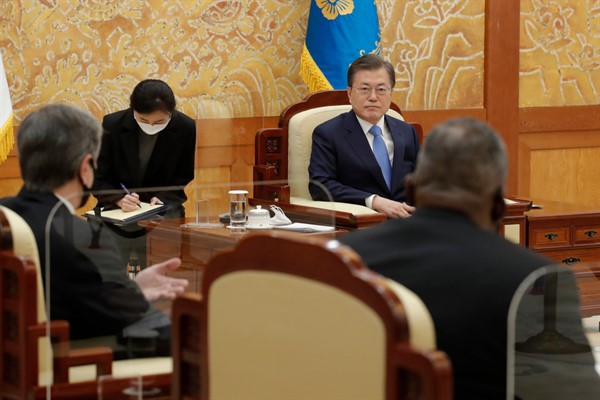South Koreans often refer to their country with a famous proverb: “In a fight between whales, the shrimp’s back gets broken.” But rather than a shrimp, Seoul is betting that it can become a dolphin, giving it more agency and maneuverability as competition heats up between the United States and China.
Getting it right would allow the country to balance its security alliance with the United States along with its economic dependence on China. Getting it wrong would see South Korea alienated in the region, distrusted by both Washington and Beijing. This balance will prove difficult, but South Korean leaders are unlikely to stop trying.
Among East Asia-watchers in the U.S., Seoul’s hypothesized “tilt” toward China has become something of an obsession—especially under the presidency of Moon Jae-in. Upon taking office in 2017, Moon faced a Chinese economic pressure campaign in 2017 over his predecessor’s decision to install the U.S.-made Terminal High Altitude Area Defense missile system, known as THAAD. He sought to normalize relations with Beijing by agreeing to the “three no’s”—no more THAAD deployments, no South Korean integration into a regional U.S. missile defense system, and no trilateral military alliance with the U.S. and Japan. This was cast by many experts in Washington as a reward for China’s bad behavior, even though the agreement amounted to little in practice.

